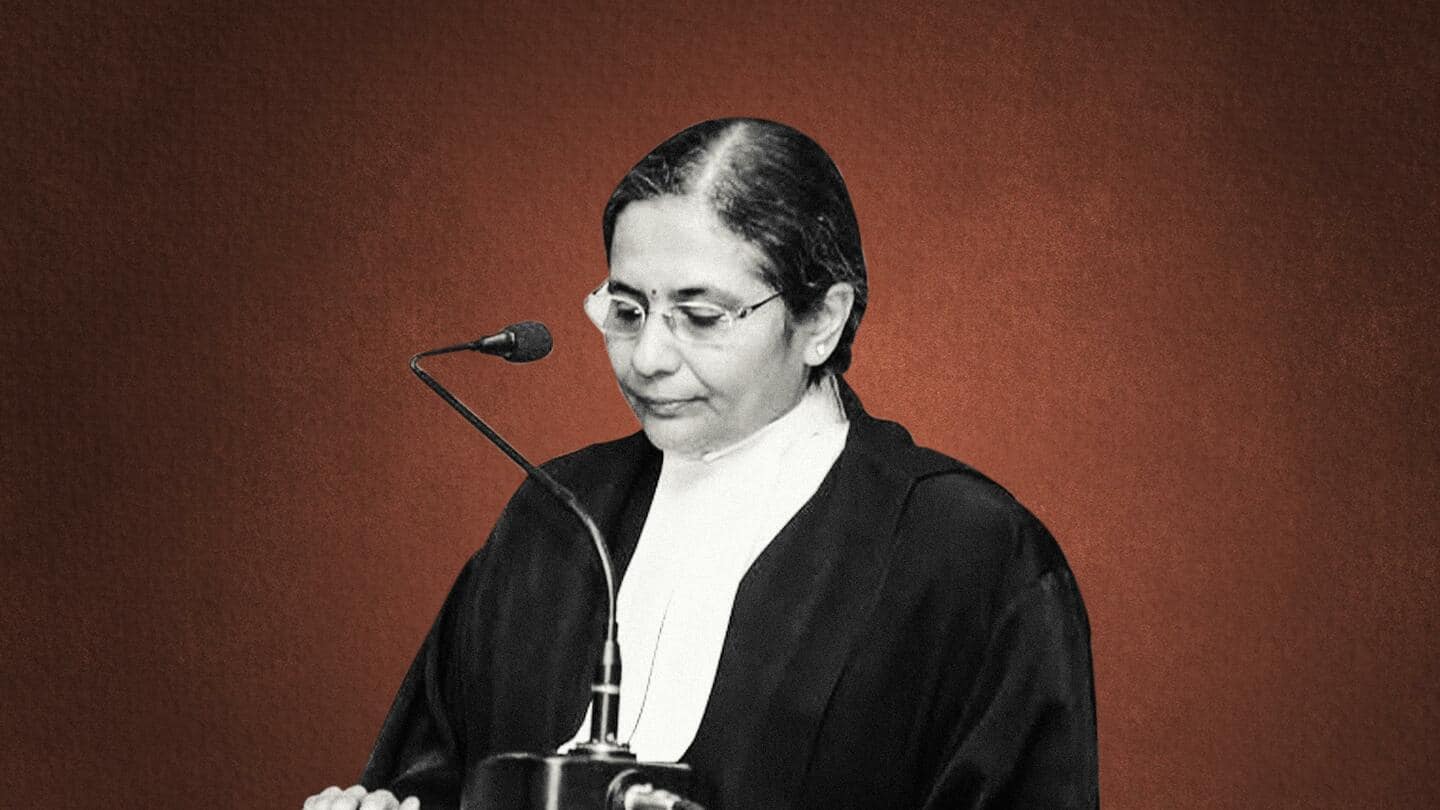
Meet Bela Trivedi, who recused herself from Bilkis Bano case
What's the story
The Bilkis Bano case took an unusual turn on Tuesday after the Supreme Court adjourned her plea challenging the early release of 11 men convicted for her gang rape and murder of her family members during the 2002 Gujarat riots.
The development came after a judge on the SC bench—Justice Bela M Trivedi—recused herself from hearing the case.
Here's everything to know about Trivedi.
Details
Early life and education
Born on June 10, 1960, Justice Trivedi is a native of Patan in North Gujarat.
She did her schooling at various institutions across the country as her father, who also served as a judge earlier, had a transferable judicial job.
She finished her LLB from MS University, Vadodara. And after finishing her studies, she enrolled as an advocate in 1983.
Do You Know
She holds a Limca Book record
In 1995, Trivedi was appointed as a judge at Ahmedabad's City Civil and Sessions Court, where her father was also a judge at the time. The Limca Book of Indian Records mentioned the duo as a special entry as "father-daughter judges in the same court."
Information
Her stint in judicial, government services
According to SCC Online, Trivedi previously served as a member of the judicial services in different capacities like Registrar (Vigilance) in the Gujarat High Court, a judge at a Central Bureau of Investigation (CBI) Court, and a special judge for the 2008 Ahmedabad serial blasts case, among others.
She was also deputed as the Law Secretary of the Gujarat government between 2004 and 2006.
Career
Beginning of career as a judge
In February 2011, Trivedi was elevated as an additional judge of the Gujarat High Court.
In June 2011, she was transferred to the Rajasthan HC, where she was confirmed as a permanent judge in 2013.
Trivedi returned to the Gujarat HC three years later, in 2016.
And then, in 2021, she became the first woman judge from the Gujarat HC appointed for the SC.
Work
Significant rulings by Trivedi as Gujarat HC judge
Notable rulings by Trivedi include the expedition of a Hindu man's conversion to Islam in December 2020.
In January 2021, observing animals--like humans--can comprehend mental and physical pain, she denied bail to a man charged under The Prevention of Animal Cruelty Act.
In 2021, a Trivedi-led bench ruled the Centre's COVID-19 guidelines on dead body management didn't violate Parsi last rites or fundamental rights.
At top court
Was part of SC bench that decided on EWS quota
Notably, as a Supreme Court judge, Justice Trivedi was part of the five-judge bench that upheld the 103rd Constitutional Amendment last month to provide the Economically Weaker Section (EWS) reservation in Janhit Abhiyan v Union of India.
Holding the EWS quota as constitutionally valid, it allowed a 10% reservation to the economically weaker classes of the "upper castes" in educational institutions and government jobs.